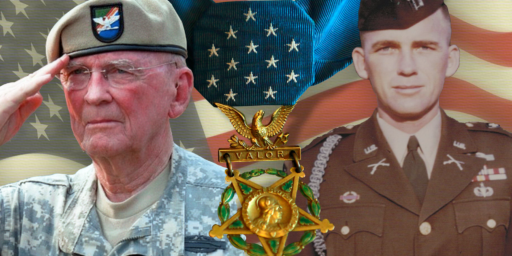SPECOPS
Time Magazine has an interesting feature article on US special operations forces.
U.S. special forces, a fabled but mostly misunderstood arm of the U.S. military, didn’t win the war in Iraq. But America’s secret army, deployed in greater numbers than ever before and working for the first time with the support of the entire chain of command, did as much as the pilots, tankers and artillery to shorten the war. And now, as the U.S. finds itself in a deepening struggle to root out stubborn pockets of resistance and track down Saddam, the Pentagon’s most specialized units are again playing outsize roles.
The piece shows how much has changed in a short time: despite a much smaller overall deployment, there were three times the SOF in Gulf II as in Gulf I; they were much more tightly integrated into the combined operation rather than being deployed as “lone rangers;” and there is now senior leadership in place that knows how to use them.





I had read that article too, and was thinking of the following. In the mid to late 1990s after the major part of the drawdown, many of the young officers I knew (friends, whatnot) during my stint as a military spouse felt they had to make a decision on wether or not to stay in the military. At the time, there were fears that there weren’t enough command positions to get up higher on the ladder, etc.
What is interesting is that of the guys who decided to stay, almost all went SF, because they felt it was more professional.
But isn’t a big part of the difference (Gulf I vs. Gulf II) Schwarzkopf’s disdain for Special Ops guys? Didn’t he contemptuously refer to them as “snake eaters”?
—